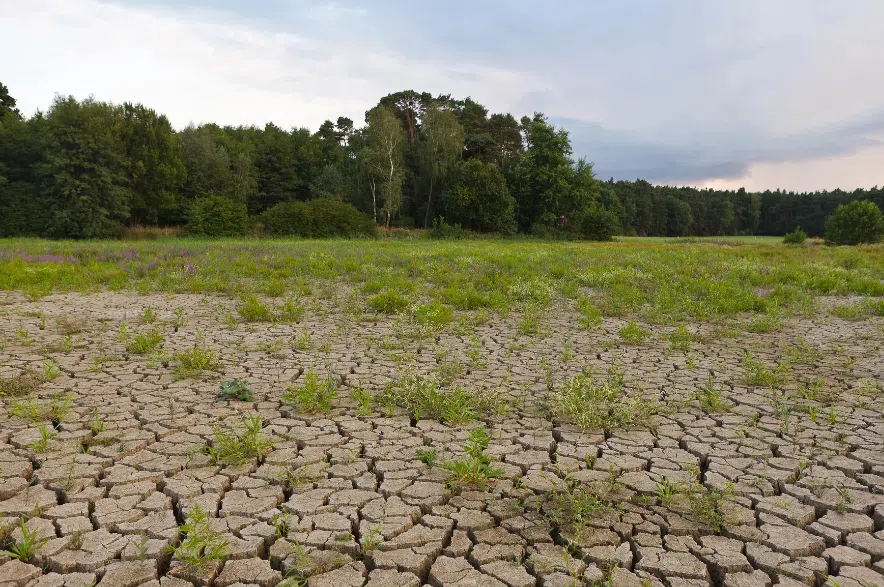More than half a dozen industry groups in Saskatchewan came out this week supportive of the province’s move to reduce its industrial carbon tax rate to zero. However, the Saskatchewan Environmental Society is on the other side of that coin.
“We think it’s a very serious mistake. It’s going to undermine Saskatchewan’s climate change policies and everything that’s outlined in its Prairie Resilience strategy,” said Peter Prebble, a member of the board of directors for the society.
Read more:
- What do the changes to Canada’s carbon tax mean for Saskatchewan?
- Consumer carbon tax will end on April 1 after order by Mark Carney
He said the society is strongly opposed to the move, explaining it will be bad for the environment, investment in clean industry in the province, and it will have Saskatchewan violating federal law as well.
“Premier Moe just appears to be ignoring the realities of what’s happening on our planet. Our planet is issuing more and more distress calls around climate change with more and more severe weather events and with ecosystems dying or in deep trouble,” said Prebble.
He pointed to drought and worsening wildfires as evidence of climate change in Saskatchewan.
Prebble called the large emitter pricing the workhorse of good climate change policy in Canada. A recent Canadian Climate Institute report said the industrial carbon pricing scheme in Canada will be the single biggest driver of emissions reductions in Canada by 2030.
The pricing change also worried Prebble in terms of green investment.
“Eliminating our climate plans undermines Saskatchewan’s reputation internationally and cancelling the industrial price on carbon is creating uncertainty for business and investors who will have been planning clean technology investments,” he said.
He was also worried about the grants for emissions reductions that Saskatchewan’s price on carbon had been meant to feed.
Prebble also said it will put Saskatchewan in a deficit position for the coming fiscal year — the 2025-26 budget included $431 million in revenue from the tax — the premier said this week his government will still work to deliver a surplus budget, calling the tax change “immaterial”.
This move is another in a list of changes Prebble said the province has made against environmental policy.
He said the government is signalling it plans to keep its coal-fired power plants into the 2040s, and efficiency regulations for new building construction have been rolled back.
“All of this adds up to really putting Saskatchewan’s climate change policy under the bus,” said Prebble.
He said this is Saskatchewan setting a bad example for the global community at a time when strong climate policy is needed.
Wheat Growers happy with decision
The Wheat Growers Association celebrated the decision to get rid of the industrial carbon tax this week
“I think it’s a great decision by the Saskatchewan government,” said chair of the association, Daryl Fransoo.
“Farmers are the backbone of the provincial economy, yet we’ve been hit hard with tariffs and taxes and everything over over the last several years.”
He said the decision will put money back into the pockets of farmers and improve the province’s position in the markets.
“Any time that we can be made more competitive globally, because we do, we do compete on a global level is a good thing for agriculture in Saskatchewan,” Fransoo said.
“Premier Moe’s decision acknowledges the negative impact that this tax has had on our industry,” said SHCA President Shantel Lipp in a news release.
“By pausing the industrial carbon tax, our members will see reduced financial pressures on key materials and inputs, allowing for more competitive project costs and greater investment in the province’s infrastructure.”
The association noted the industrial carbon tax has increased the cost for construction materials like steel, asphalt, and concrete.
The Saskatchewan Cattle Association, the Saskatchewan Farm Stewardship Association, Mosaic Canada, the Saskatchewan Association for Rural Municipalities, and the Saskatchewan Realtors Association all put their support behind the Saskatchewan government’s move as well.
— with files from CJME’s Lisa Schick and Gillian Massie
Read more:











